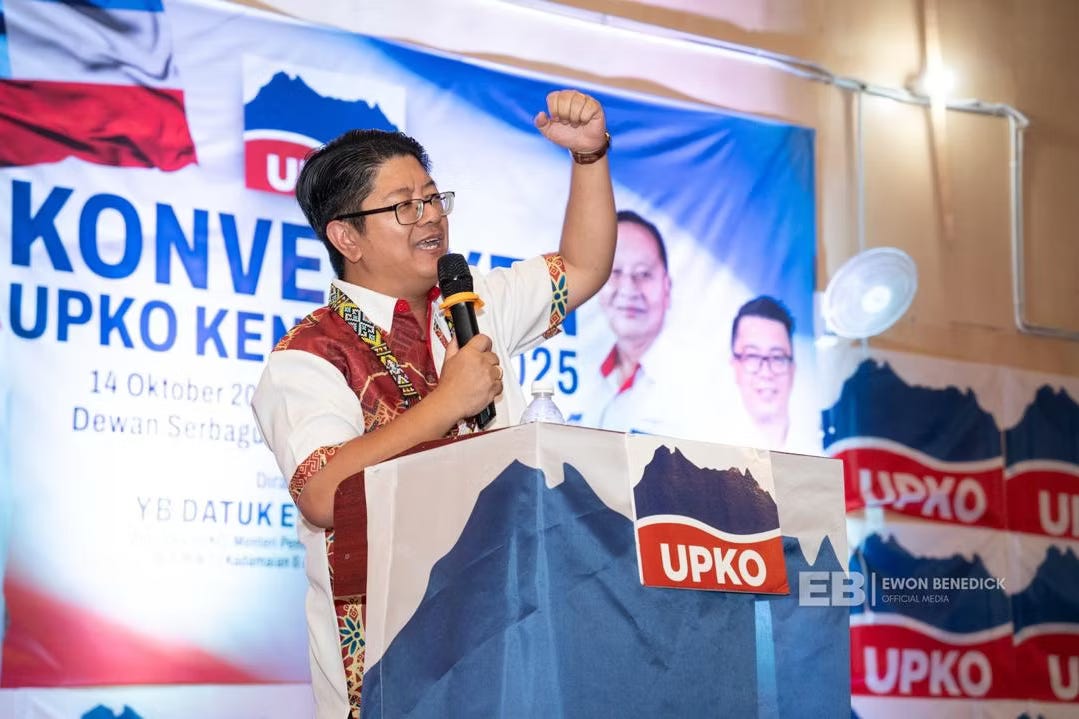Sabah Party Shakes State Polls With Sudden Exit From Anwar Coalition
Exit won’t directly affect Anwar coalition but complicates governing
By: Wong Chin Huat
With just days to go before weekend nominations for Sabah state elections, a major state party has quit Anwar Ibrahim’s coalition in a long-festering dispute over the division of the revenues from Sabah’s bountiful natural resources, dealing the prime minister’s government a psychological blow in advance of the November 29 state polls.
While the state election won’t directly affect Anwar’s 69 percent parliamentary majority, Anwar faces a tougher time governing if assertive regionalist parties demanding a larger share of revenues win power.
The dispute, exacerbated by other issues including ethnic tensions, harkens back to an agreement forged in 1963 when Malaysia was formed from under the British colonial yoke, with Sabah entitled to claim 40 percent of the difference in net revenue from the state in any given year. Just last month, the state’s high court in Kota Kinabalu ruled the federal government had acted unconstitutionally in withholding those revenues, estimated at a stunning RM154 billion (US$37.2 billion), or nearly double Sabah’s annual state revenue of RM84.3 billion.
The court ordered the federal government to conduct a review with Sabah to determine the exact entitlement amount for the period in question, with the review to commence within 90 days and be completed within 180 days.
Ewon Benedick, who heads the United Progressive Kinabalu Organization or UPKO, took his party out of Anwar’s Pakatan Harapan coalition and resigned as Entrepreneur and Cooperatives Development Minister on Saturday, citing his disagreement with the Attorney General’s Chambers (AGC) on Sabah’s fiscal rights.
A first-term minister, Benedick is already seen in Sabah as a hero for his willingness to quit the federal cabinet over the state’s fiscal interest. He can now claim credit for killing the government’s option to appeal over the 40 percent transfer after the attorney general backed away from an appeal in an effort at damage control.
UPKO’s decisive move steals the limelight from two outspoken local parties, Heritage Party (Warisan) and Homeland Solidarity Party (STAR), in the race for Sabah nationalism. Led by one-time PM-aspirant and Anwar’s rival Shafie Apdal, the Muslim-led multiethnic Warisan has long positioned itself as Sabah’s only real champion. Both Pakatan Harapan and the United Malays National Organization (UMNO) in Sabah are state chapters of national blocs.
While the incumbent Chief Minister Hajiji Nor’s coalition, Sabah People’s Coalition (GRS), consists of only Sabah-based parties, it has been seen as too close to and too soft before the federal government.
Early October, STAR walked out of People’s Coalition in opposition to Hajiji’s electoral pact with PH in the state poll. By going solo, STAR can field candidates against another GRS party, the United Sabah Party (PBS), and UPKO.
All three parties, PBS, STAR, and UPKO, are rooted in the predominantly Christian indigenous Kadazan-Dusun-Murut -Rungus (KDMR) community. UPKO and STAR are splinters of PBS, the dominant party from 1985 to 1994 before its ouster by UMNO.
The indigenous community has long been staunchly critical of the Muslim-dominated federal government since Malaysia’s formation in 1963. Once the state’s majority, the indigenous peoples have been overtaken by the Muslim natives, whose numbers grew exponentially over decades with federally-sponsored enfranchisement of Filipino and Indonesian Muslims in the 1980s and 1990s and aggressive proselytization of Islam.
For the indigenous group politicians, championing state rights is a call for both state autonomy and communal resurgence, respectively with a broad-based and a narrower appeal.
Jeffrey Kitingan, 77, STAR president and the younger brother of PBS founder Pairin Kitingan, is hoping to sweep through the KDMR-majority seats - 17 out of the total 73 – and preside over a coalition government as Chief Minister. However, all five other STAR lawmakers chose to stay with GRS.
The mild-mannered and baby-faced Mr Benedick, 42, may have stolen the wind from Mr Kitingan’s sail. Now not bound by any electoral pact, UPKO is expected to charge into the KDMR and mixed territories of STAR, GRS, PH, BN, and Warisan.
With hyper fragmentation and expected low turnout, the election under the First-Past-The-Post system may result in anything from hyper-fragmentation to a surprise majority winner on a thin base. Anwar’s hold on Sabah is already threatened by the failure of his two allies – GRS and UMNO – to reach a compromise in dividing their political territories, with their rivalry likely to benefit Warisan in Muslim-native constituencies.
Since late 2024, elected representatives from GRS, ex-UMNO and STAR, have been exposed via a secret video admitting to taking bribes in exchange for mining prospecting licenses. Federal authorities have been slow in investigation and prosecution, inviting allegations that either the government in Putrajaya is covering up for Hajiji or using the scandal to control him.
Either way, this has alienated reformist voters in urban areas, making it possible to flip some urban Chinese seats from PH.
A few months ago, the mysterious death of Zara Qairina Mahathir, 13, rumored to have been bullied by an unnamed grandchild of a prominent politician, caused state-wide protests.
Activists see a rising anti-establishment undercurrent against the state’s political elites, including against the state’s governor Musa Aman, a powerful ally of both Anwar and Hajiji. Ruling Sabah as Chief Minister for 15 years before UMNO’s ouster in 2018, Musa was regarded as the face of political corruption.
A Sabah helmed by either Shafie or Kitingan would be most dreaded by Anwar. Musa and Shafie are sworn enemies since their days in UMNO, with few thinking the governor would allow Shafie to form a coalition government if Warisan does not win an outright majority.
The larger question facing Sabah’s democracy: while elections could help Sabah secure some federal concessions, can they make politics less corrupt and more accountable?
Wong Chin Huat is a political science professor at Sunway University, Malaysia

